Rosacea Diet 101: Best Food Swaps that Help Our Patients Avoid Triggering Flare-Ups For Good!
Transform Your Skin with the Rosacea Diet: Best Foods to Prevent Flare-Ups
Are you tired of constantly dealing with rosacea flare-ups? We understand the frustration you may be feeling after dealing with ineffective and sometimes pricey treatments. But don’t worry… because we’re here to discuss a natural way to reverse your symptoms with a rosacea-friendly diet… let’s call it a ROSACEA DIET.
In fact, in a survey of 400 patients, 78% had changed their diet as a measure to control rosacea. The results showed that 75% of patients in this group subsequently had a reduction of rosacea flares. 1
With a holistic approach, you may be able to achieve clear skin finally. Say goodbye to the fear of flare-ups and join us on this journey towards healthier, happier skin.
Key Takeaways
- Rosacea diet and nutrition can reduce inflammation and can help clear inflammatory skin symptoms
- 75% of patients who incorporate a rosacea diet protocol see a significant reduction in flare-ups
- Starting with simple food swaps can have a huge impact on your gut health
- Following a step-by-step protocol can help get you started on a journey to clear skin
What is Rosacea?
To understand the impact of diet on rosacea, it’s important to have a clear understanding of what rosacea actually is.
Rosacea is a long-lasting skin disease that causes flushing, flare-ups, red cheeks, and redness on the face and possibly other areas of the body. It’s believed to be caused by an internal immune response, although the exact cause is still unknown. Genetic, dietary, and environmental factors contribute to its onset. Common rosacea triggers, symptoms, and treatments of rosacea include:
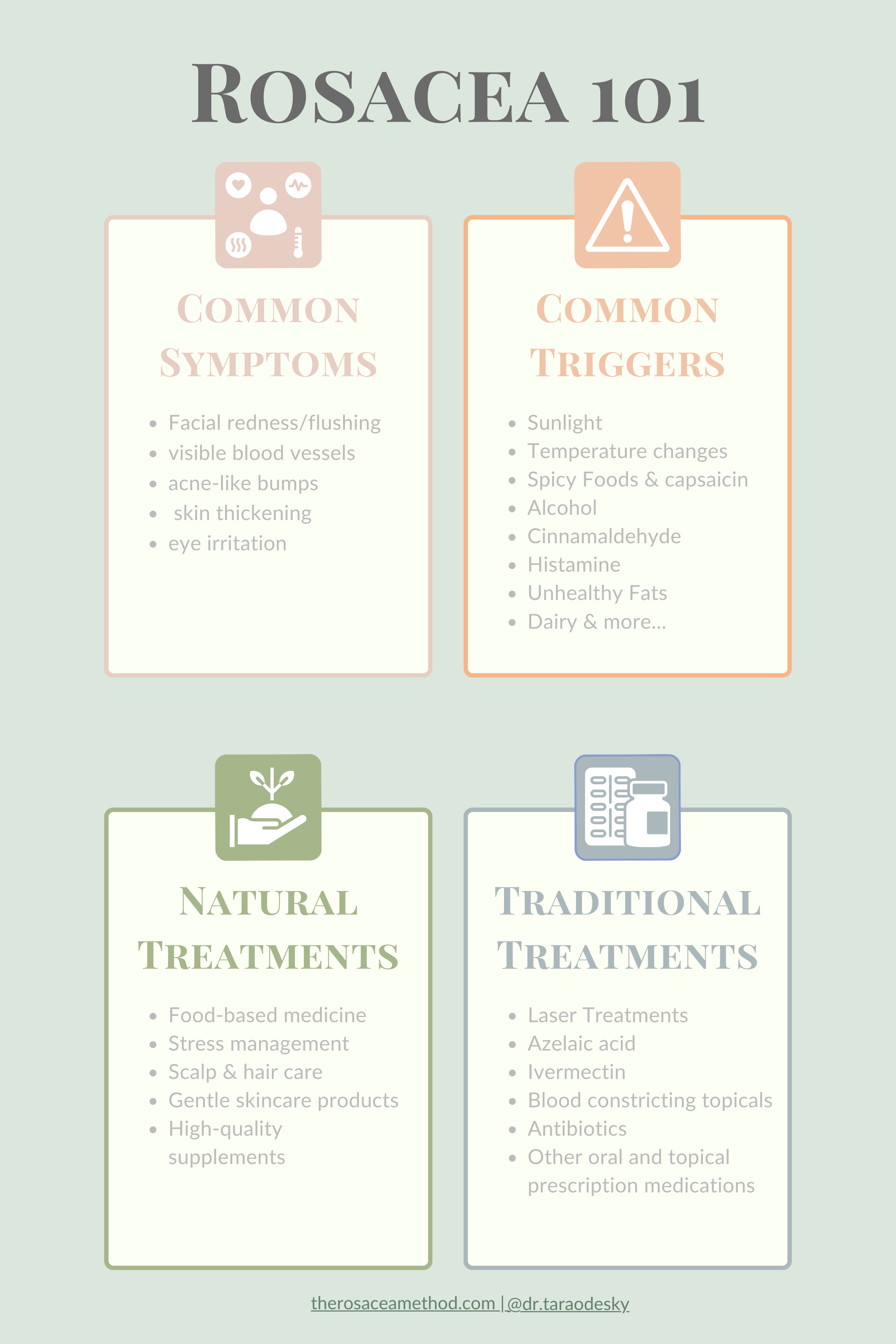
While there’s no cure for rosacea, incorporating the foods listed below can help restore gut health and potentially reverse your inflammatory symptoms.
Rosacea Diet 101: Best Foods to Reduce Flare-Ups For Good
Understanding how your diet and overall nutrition affect rosacea flare-ups is crucial. A rosacea-friendly diet can help reduce inflammation and promote healthier skin overall. Consider including foods rich in antioxidants to decrease chronic inflammation, such as:
- Wild blueberries
- Dark leafy greens
- Colorful fruits and vegetables
- Beans (red, pinto)
- Artichoke
- Apples
- Pecans
Omega-3 fatty acids have multiple benefits, including blocking inflammatory pathways. These can be found in some of the following foods:
- Oily fish
- Seafood
- Flax seeds
- Chia seeds
- Walnuts
Additionally, incorporating prebiotics through high-fiber foods in a rosacea diet can support a healthy gut microbiome.
- Lentils
- Beans
- Peas
- Chia
- Nuts
- Quinoa
- Chickpeas
- Brussle Spouts
- Edamame
- Artichoke
- Barley
Reading the lists of foods above, you should ask yourself how many of these foods you eat on a daily basis. Most people eating the SAD (Standard American Diet) are eating a diet of fast food, bread, cheese, processed meat, and fried food. They rarely eat these real foods, which are nutrient-dense and extremely beneficial to overall health. By incorporating some of these foods into your diet each day, you can drastically improve your gut health and lower your overall inflammation. In time, these changes can absolutely have a positive impact on rosacea and reduce the frequency and severity of flare-ups.
How Does Gut Health Affect Your Skin?
The health of your gut can have a massive impact on the condition of your skin, which is particularly true for rosacea. Here are three ways that gut health affects your skin:
- Gut bacteria: A healthy community of beneficial bacteria in your intestines plays a crucial role in maintaining healthy skin. Imbalances in the gut bacteria can lead to inflammation and skin conditions like rosacea.
- The gut-skin axis: Dysbiosis in the skin and/or gut microbiome is directly associated with an altered immune response, prompting the development of inflammatory skin diseases such as rosacea, eczema, dermatitis, psoriasis, acne, and so many more.
- Rosacea diet: The foods we eat can impact our gut health and, in turn, our skin. A rosacea diet rich in antioxidants, omega-3 fatty acids, and prebiotics can promote a healthy gut bacteria environment and reduce inflammation, potentially improving rosacea symptoms.
Understanding the connection between gut health and rosacea along with other skin conditions is important for developing effective treatment strategies.
Medical vs. Dietary Treatments for Rosacea
Now, let’s talk about the comparison between medical and dietary treatments for rosacea, focusing on how well they work in managing symptoms.
When it comes to treating rosacea, there are both medical and dietary options available.
Medical treatments for rosacea often involve using prescription medications like Metro gel, which is a topical antibiotic that can help reduce redness and inflammation. This medication is often prescribed to manage symptoms and prevent flare-ups. However, long-term use of antibiotics has been shown to be detrimental to gut health, and many people experience reactions to the ingredients found in these topical products.
On the other hand, rosacea dietary treatments involve making changes to your diet to reduce inflammation and improve overall gut health and skin health. This can include eating foods that are anti-inflammatory and rich in antioxidants and omega-3 fatty acids. While rosacea dietary treatments will often require cooking at home and reading ingredient labels, they can help improve your skin condition in the long run by focusing on internal healing.
It’s important to note that the effectiveness of both medical and dietary treatments for rosacea can vary from person to person, so it’s essential to consult with a healthcare professional to figure out the best approach for your specific needs.
Why an Anti-Inflammatory Rosacea Diet?
Because inflammation plays a major role in the development and progression of rosacea, adopting an anti-inflammatory diet is important for managing symptoms and improving overall skin health. Here are three reasons why an anti-inflammatory diet is important for individuals with rosacea:
- Reduces inflammation: An anti-inflammatory rosacea diet focuses on eating foods that help to reduce inflammation in the body. By including anti-inflammatory foods like berries, dark leafy greens, and omega-3 fatty acids found in fish and seeds, you can help to reduce chronic inflammation associated with rosacea.
- Avoids food triggers: Certain foods can trigger or worsen rosacea flare-ups. By following an anti-inflammatory rosacea diet, you can identify and avoid these triggers, helping to minimize symptoms and prevent flare-ups.
- Supports overall health: An anti-inflammatory rosacea diet not only benefits your skin but also supports your overall health. It can help to lower the risk of chronic diseases like heart disease, cancer, and arthritis while promoting a healthy gut microbiome and balanced immune response.
THIS or THAT: 5 Food Swaps To Help Reduce Rosacea Flare-Ups!
Let’s talk about some easy alternative foods to incorporate into your new rosacea diet that can help reduce flare-ups.
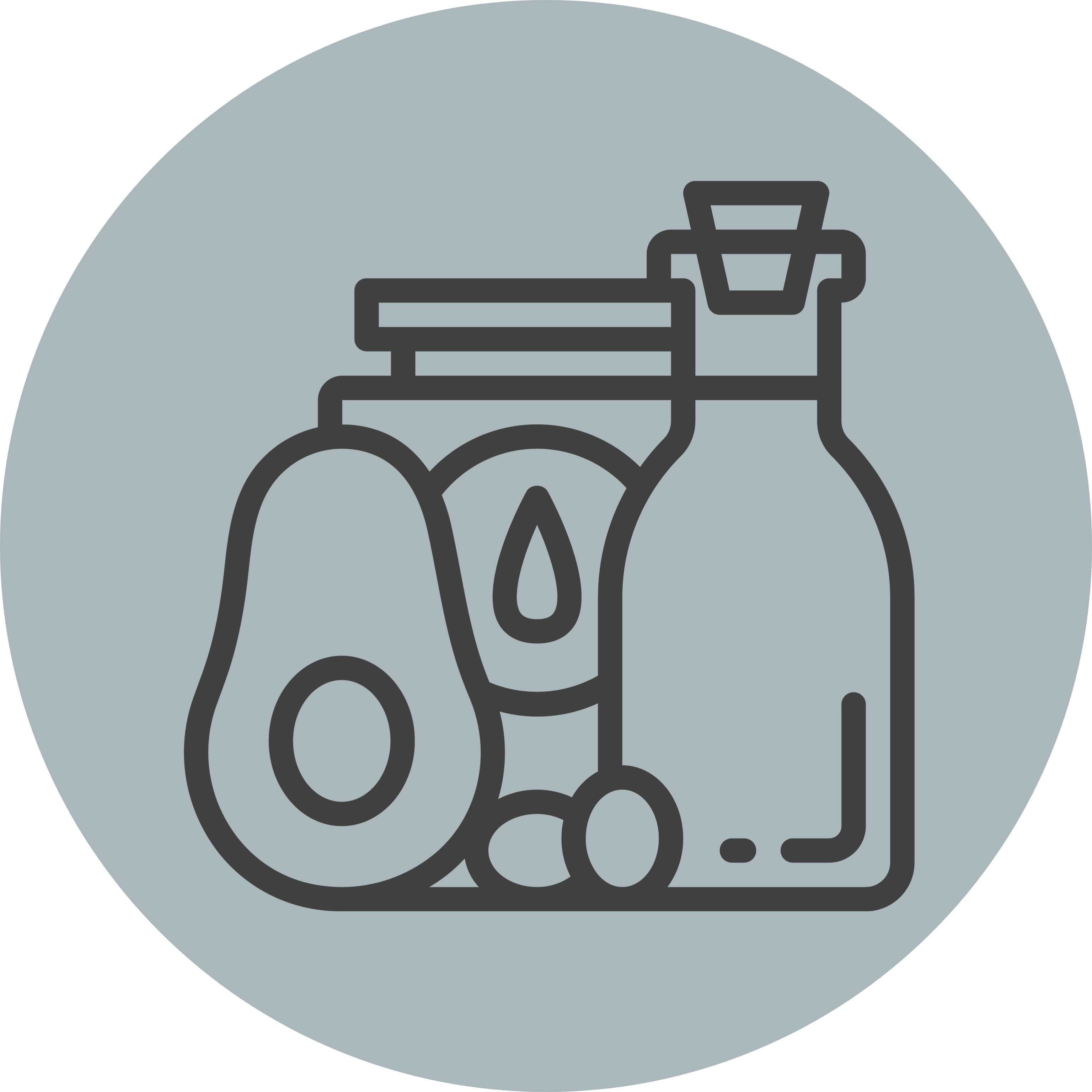
1. Instead of Vegetable or Canola Oils
Choose Healthy Fats Like Coconut, Avocado, or Olive Oils
Choosing healthy fats like coconut, avocado, or olive oils can be fantastic for reducing rosacea flare-ups. These healthy fats provide important nutrients and have anti-inflammatory properties that can help calm the skin and reduce redness.
Here are three reasons why using these oils in your rosacea diet treatment can be helpful:
- Coconut oil: This unique oil contains polyphenols, which can help reduce oxidative stress, and it’s antimicrobial, which helps decrease bad bacteria in your gut.
- Avocado oil: Rich in vitamins E and C, avocado oil can help protect the body from harmful stress and promote healing. It also has properties that can soothe irritated skin.
- Olive oil: Known for its high content of monounsaturated fats, olive oil can help reduce inflammation and improve heart health. It has antioxidants that can support overall skin health and reduce redness.
By choosing these healthy fats instead of vegetable or canola oils, you can support your skin’s health and potentially reduce rosacea symptoms.
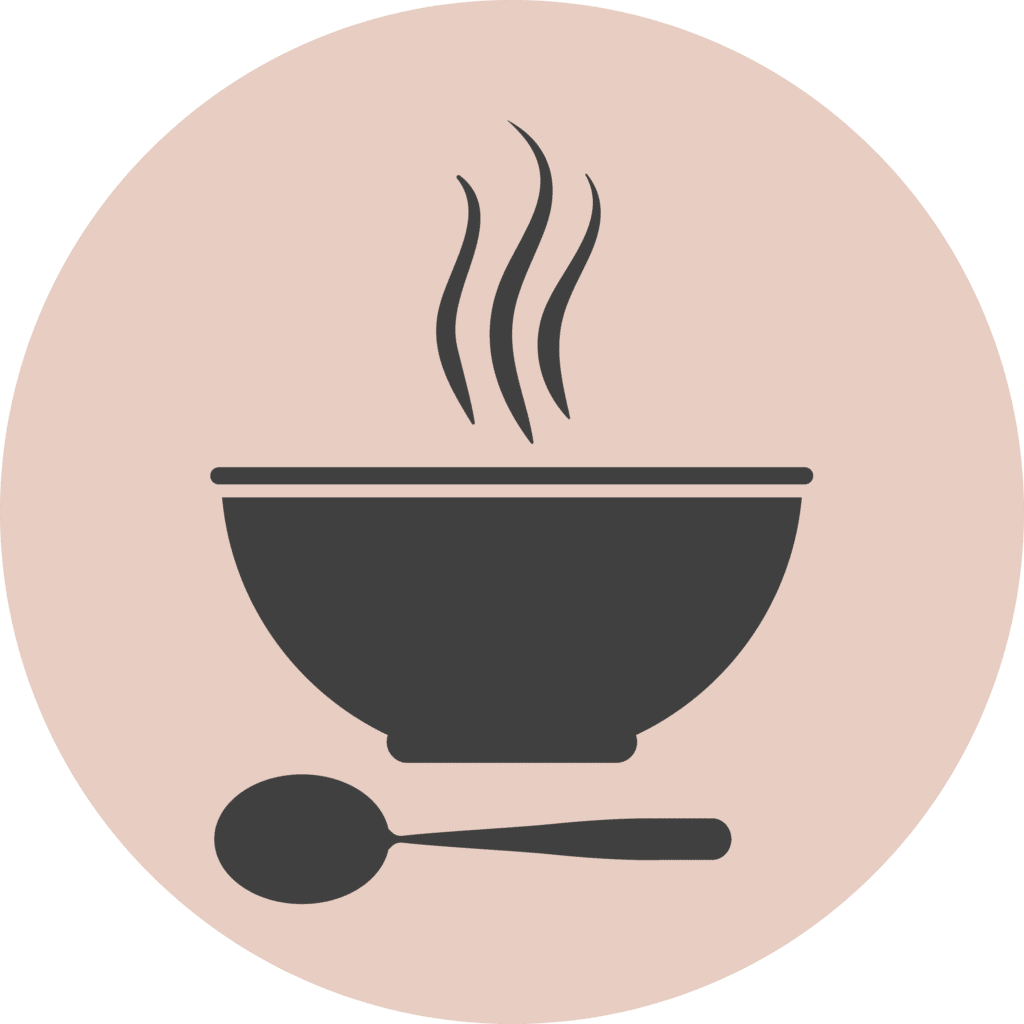
2. Instead of Canned Soups
Make Your Own Gut-Healing Soups
We suggest making some basic gut-healing soups with a bone broth base instead of canned soups to focus on gut health and help reduce rosacea flare-ups. Canned soups often have a lot of sodium, gluten, and saturated fats, which can make inflammation worse and trigger rosacea symptoms.
On the other hand, gut-healing soups made with bone broth have many health benefits and can support skin health. Bone broth is full of collagen, amino acids, and minerals that promote gut health and reduce inflammation. These nutrients can help strengthen the intestinal wall, support a healthy gut microbiome, and lower the risk of Leaky Gut, which is often associated with rosacea. By including gut-healing soups in your rosacea diet treatment, you can nourish your body from the inside out and help ease symptoms of flare-ups.
Benefits of Gut-Healing Soups with a Bone Broth Base:
- Promote gut health
- Strengthen the intestinal wall
- Support a healthy gut microbiome
- Reduce inflammation
- Ease symptoms of rosacea
- Support skin healing
- Provide essential nutrients
- Rich in collagen, amino acids, and minerals
- Nourish the body from the inside out
- Easy to digest
- Gentle on the digestive system
- Easier absorption of nutrients
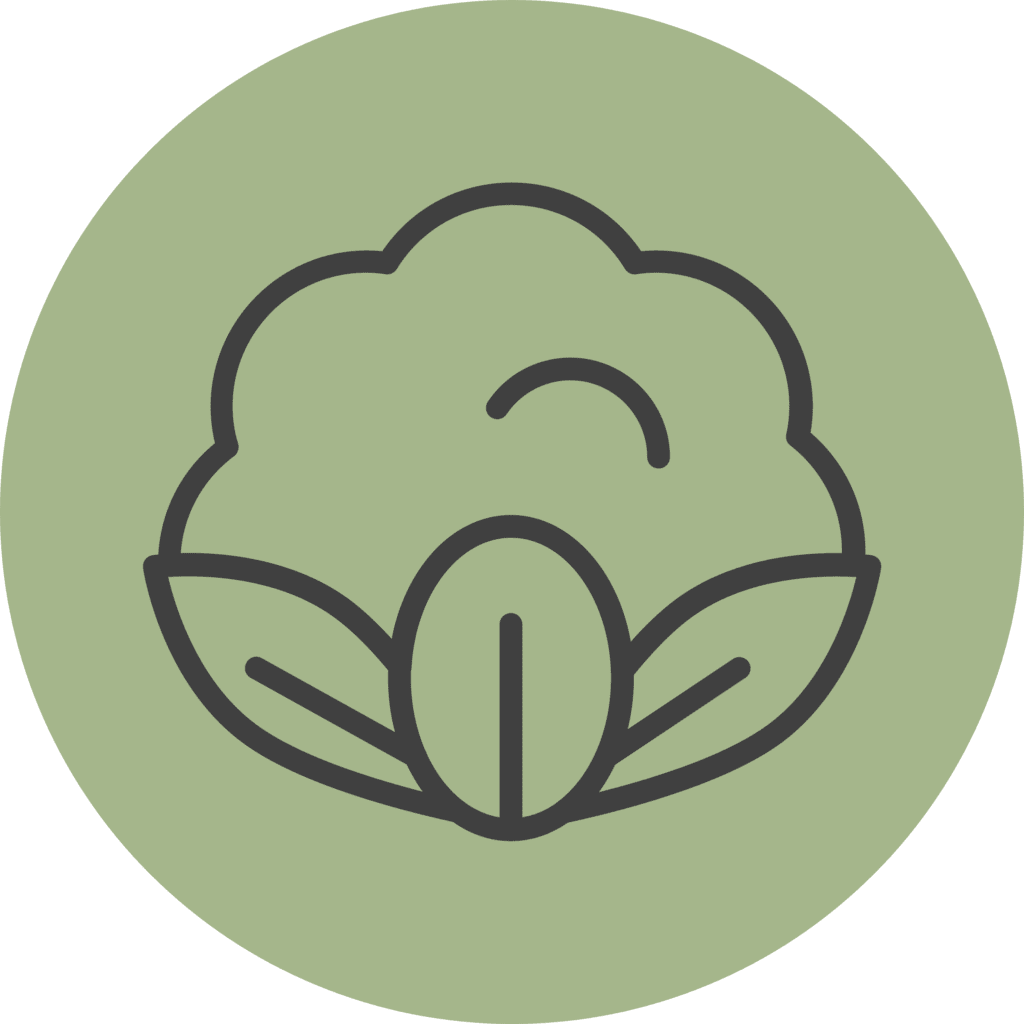
3. Instead of Corn Chips or Pita Chips
Choose chips made from cassava, cauliflower, or beans
To continue our discussion on reducing rosacea flare-ups through diet, an alternative to corn chips is choosing chips made from cassava, cauliflower, or beans. These options provide a healthier snack choice that can help minimize the inflammation and oxidative stress that can worsen rosacea symptoms.
Here are three reasons why you should consider these alternative chips:
- Cassava chips: Made from cassava roots, these chips are gluten-free and have a lower glycemic index compared to traditional potato chips. They’re also a staple food in African cuisines and provide nutrients like fiber and minerals.
- Cauliflower chips: These chips are a great option for those following a low-carb or ketogenic diet. They’re made from cauliflower, which is rich in antioxidants and can help reduce inflammation in the body.
- Bean chips: Made from beans like black beans or chickpeas, these chips are high in protein and fiber. They can provide a satisfying crunch while offering the health benefits of beans, such as promoting gut health and reducing inflammation.
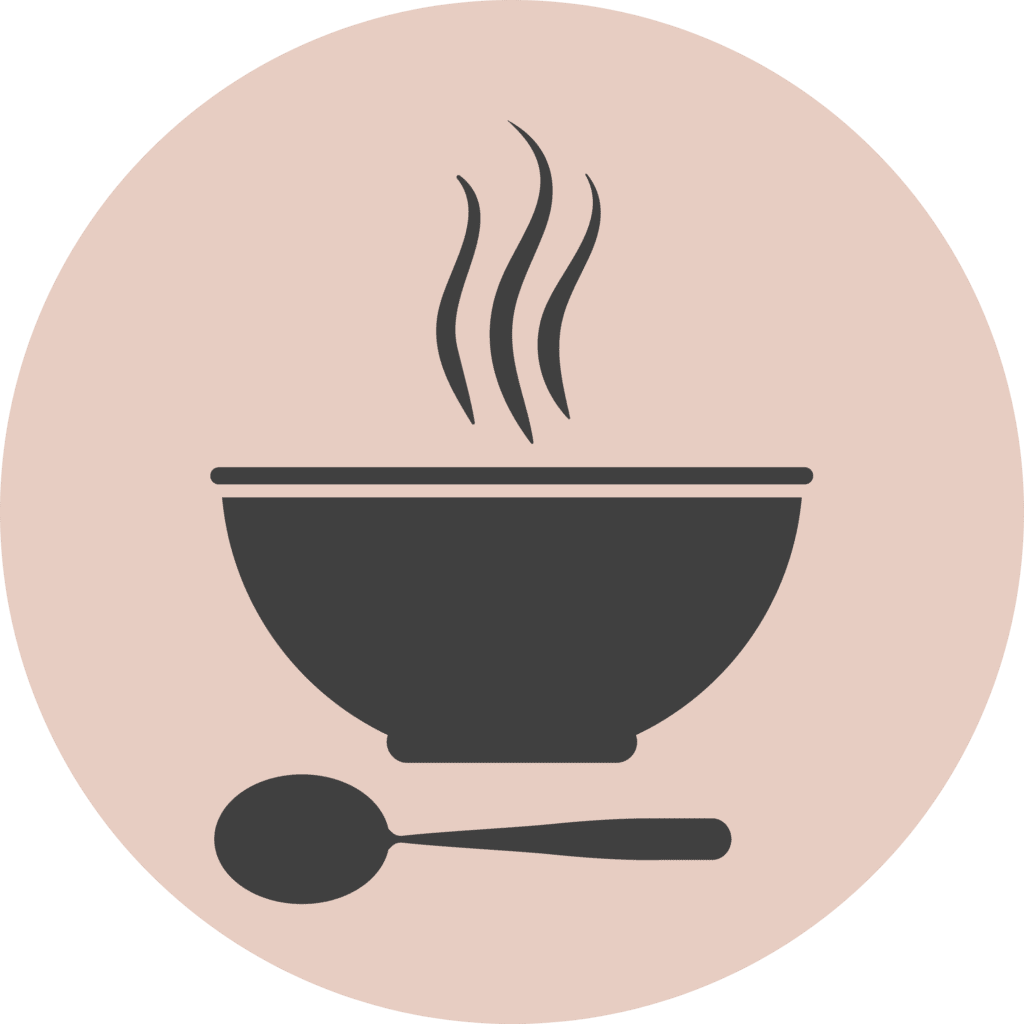
4. Instead of Ranch Dip
Choose Tzatziki, Hummus, or Guacamole
Instead of ranch dip, go for tzatziki, hummus, or guacamole to help reduce rosacea flare-ups. These tasty alternatives not only add flavor, but they also have nutritional benefits that can support your skin health. Let’s compare the nutritional profiles of these three options below:
| Dip | Calories | Healthy Ingredients | Key Benefits |
|---|---|---|---|
| Tzatziki | 60 | Greek yogurt, cucumber, garlic | High in protein and fresh herbs |
| Hummus | 70 | Chickpeas, tahini, olive oil | Anti-inflammatory and antioxidant-rich |
| Guacamole | 100 | Avocado, lime, cilantro | Healthy fats, citrus and fresh herbs |
By choosing tzatziki, hummus, or guacamole, you’re opting for dips that have fewer calories compared to ranch dip. Additionally, these alternatives contain fresh herbs and ingredients that can help reduce inflammation and promote overall skin health. So, go ahead and enjoy these flavorful options while healing from the inside out!
Instead of foods high in sugar, dyes, and chemicals for your daily prebiotics & probiotics, choose simple fermented foods like sauerkraut, kimchi, or homemade yogurt (it’s easier than you think!).
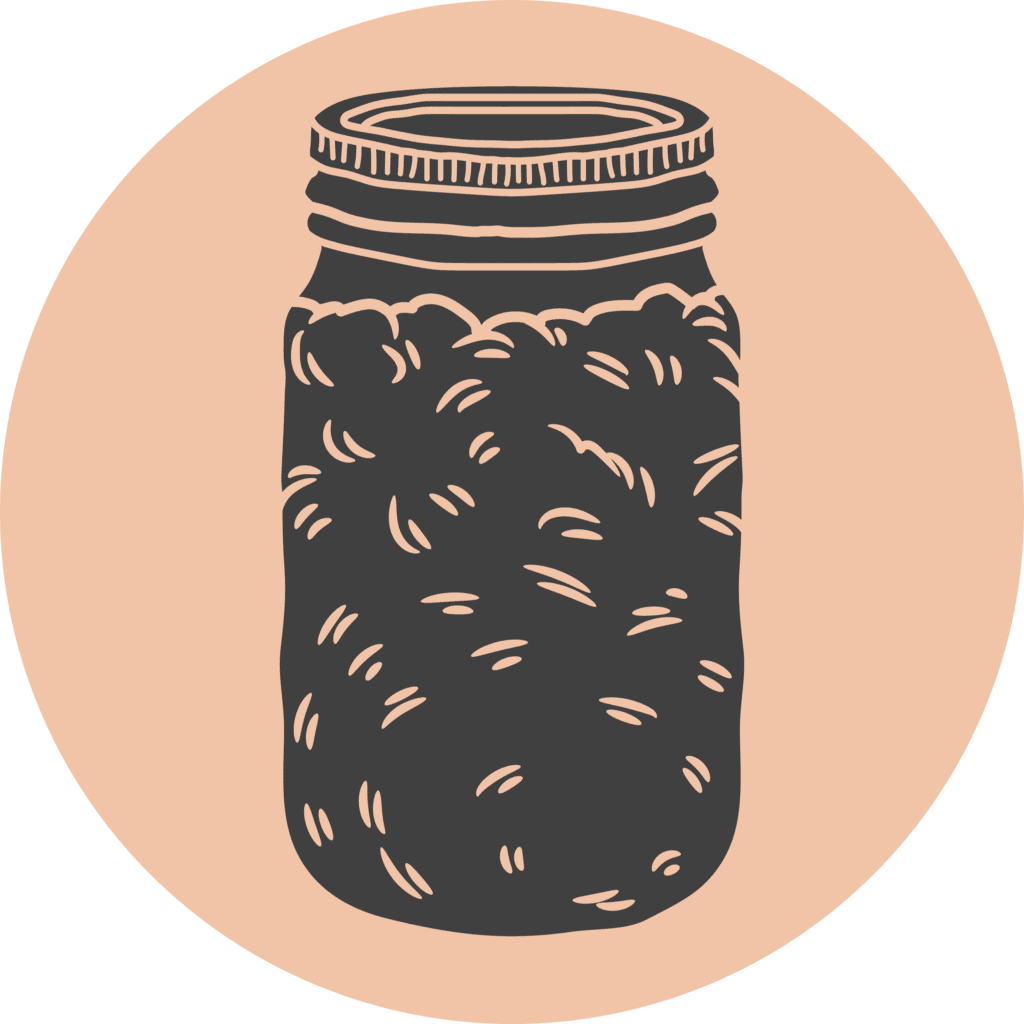
5. Instead of Foods High in Sugar, Dyes, and Chemicals
Choose fermented foods like sauerkraut, kimchi, or homemade yogurt
For your daily dose of prebiotics and probiotics, choose simple fermented foods like sauerkraut, kimchi, or homemade yogurt—they’re easier to incorporate into your diet than you might think! These fermented foods provide many health benefits and can help repair your gut and reduce rosacea flare-ups. Here’s why you should choose them:
- Fermented foods like sauerkraut, kimchi, and homemade yogurt are rich in probiotics, which are beneficial bacteria that can support a healthy gut microbiome. A balanced gut microbiome can help reduce inflammation and improve overall skin health.
- These foods also contain prebiotics, which are fibers that nourish the good bacteria in your gut. By eating prebiotic-rich foods, you can promote the growth of beneficial bacteria and support a healthy gut environment.
- Adding fermented foods to a rosacea diet is simple. You can easily include sauerkraut or kimchi in salads, sandwiches, or as a side dish. Making homemade yogurt is also easier than you might think and allows you to control the fresh ingredients and limit sugar and fillers.
By choosing these simple fermented foods, you can increase your intake of prebiotics and probiotics, which can help reduce rosacea flare-ups and improve your overall skin health.
Common Rosacea Trigger Foods to Leave Out of Your Rosacea Diet
While certain foods like those high in histamine, spicy foods, and nightshades may cause symptoms for some people, it’s important to understand that everyone’s triggers can be different.
By prioritizing gut health through a balanced and nutrient-rich rosacea diet, we can support a healthy balance of bacteria in our gut, reduce inflammation, and promote overall skin health.
This can help effectively manage symptoms of Rosacea.
❌ Gluten and Rosacea
Focusing on gut health instead of avoiding foods that trigger your symptoms can have a hugely positive impact on your overall health and chronic inflammation. Not only is gluten problematic for the gut and often leads to leaky gut, people with celiac disease, gluten sensitivities, and gluten intolerances often go undiagnosed for years. With so many great gluten-free options on the shelves these days, going gluten-free for a month and seeing if your rosacea improves could be well worth it!
❌ Spicy Foods and a Rosacea Diet
Spicy foods with no dietary benefit, like seasoned packaged foods and flavored hot sauces, can cause flare-ups in some people with rosacea. These foods contain manufactured flavors, chemicals, and preservatives that often cause an inflammatory reaction in people with rosacea.
However, instead of completely avoiding all spicy foods, it may be more helpful to focus on eating foods that have a true benefit like authentic imported spices and colorful, rich ingredients. Often, colorful herbs and spices can greatly improve the gut microbiome. Research suggests that an imbalance of bacteria in the gut, called gut dysbiosis, may play a role in rosacea.
❌ Flavored Sodas and Soft Drinks
When it comes to healing from the inside out, soda is one of the first foods you’ll want to eliminate. Not only is it high in artificial sugars, colors, and flavors, but it’s usually high in caffeine as well. In fact, there’s virtually no health benefit to soft drinks. Instead, opt for filtered water with a squeeze of fresh lemon or an herbal tea with detoxifying benefits. While certain foods can aggravate rosacea, the key is to address underlying inflammation and focus on healing the gut.
Here are three reasons why gut health is crucial for managing rosacea:
- Gut bacteria: The bacteria in our gut play a big role in rosacea. Imbalances in gut bacteria can cause inflammation and trigger flare-ups. By focusing on gut health, we can restore the balance of beneficial bacteria and reduce inflammation.
- Inflammation: Rosacea is an inflammatory skin condition, and the gut is closely connected to our immune system. Improving gut health can help regulate the immune response and reduce inflammation throughout the body, including the skin.
- Papulopustular Rosacea: Of the four types of rosacea, papulopustular rosacea is characterized by small red bumps and pustules on the skin. It has been linked to gastrointestinal disorders like irritable bowel syndrome and inflammatory bowel disease. By addressing gut health, we may be able to improve the symptoms of papulopustular rosacea.
By focusing on gut health instead of avoiding trigger foods, we can address the root causes of Rosacea and promote long-term skin healing.
The Bottom Line:
Swap Out a Few Simple Foods First
Rather than trying to avoid every trigger food with rosacea, think about each food you’re buying or putting in your mouth and ask yourself if it will help or hurt your gut microbiome. Making these small changes to your diet can help you reverse your flare-ups and clear your skin over time.
To get the most out of it, you should focus on incorporating rather than being overwhelmed with avoiding all triggers initially. Improving your nutrition for a rosacea diet is a natural and effective way to manage rosacea symptoms and promote healthier skin.
Start with small changes, like simply switching out some of your go-to snacks with gut-healthy options to help reduce inflammation and promote good bacteria growth. Incorporate:
- Antioxidant-rich foods to decrease inflammation and provide vitamins & minerals
- Omega-3 fatty acids to reduce inflammation and support skin health
- Probiotics & prebiotics through high-fiber foods to support a healthy gut microbiome
And if you are feeling information overload when it comes to clearing your skin, we’ve got you.
The Rosacea Method offers relief for those of you struggling with coming up with a clear plan from all of the rosacea advice you’ve heard over the years.
Dr. Tara O’Desky has created a simple step-by-step rosacea diet protocol that provides her expert guidance on addressing the root causes of rosacea through food-based medicine.
Ready to give it a try? Say goodbye to the challenges of inflamed skin and hello to healthier, happier skin. Finally!
Patient Result Photos
Just a few of the incredible results achieved by people who were once just like you that have followed The Rosacea Method program:
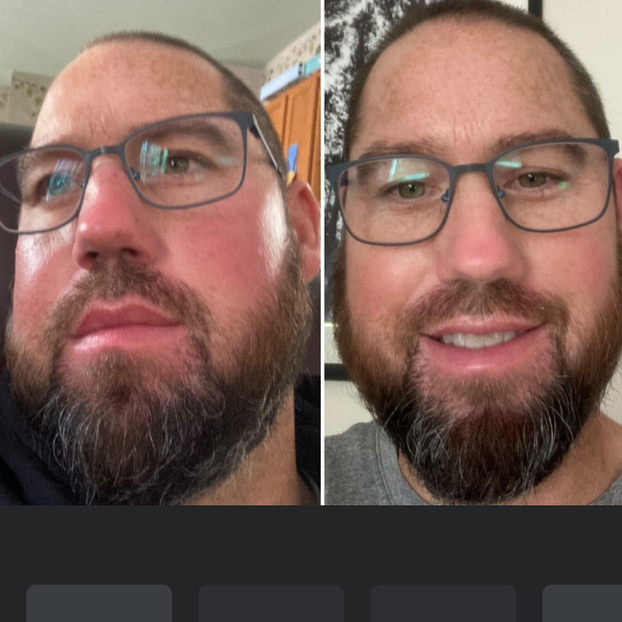
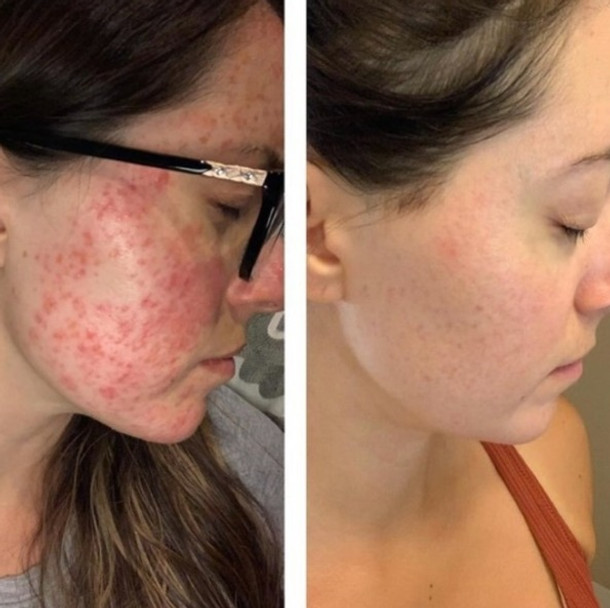
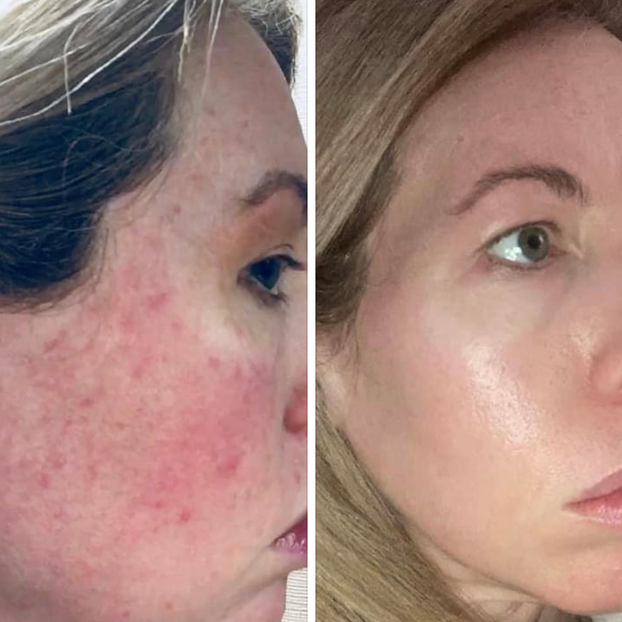
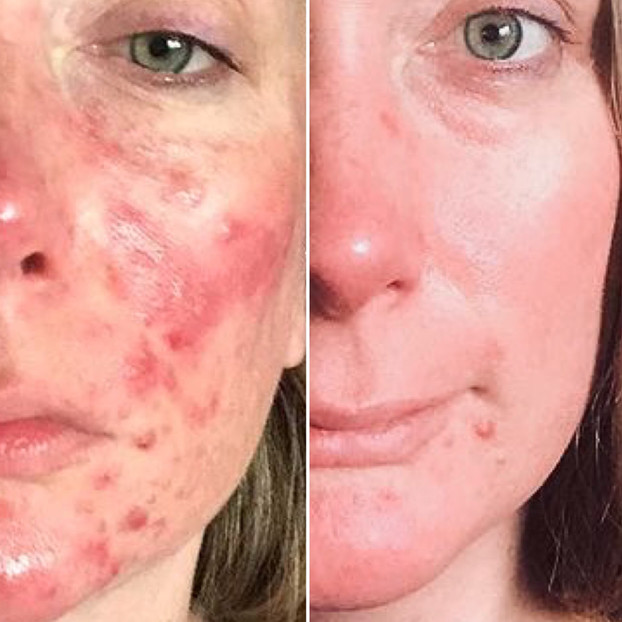
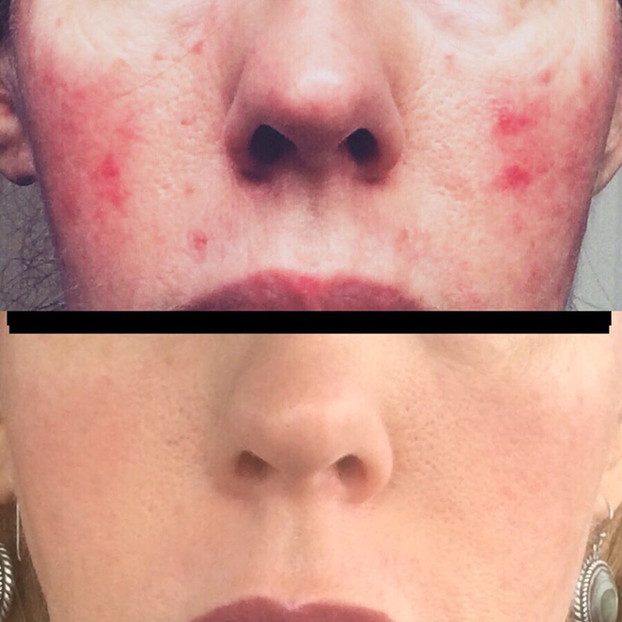
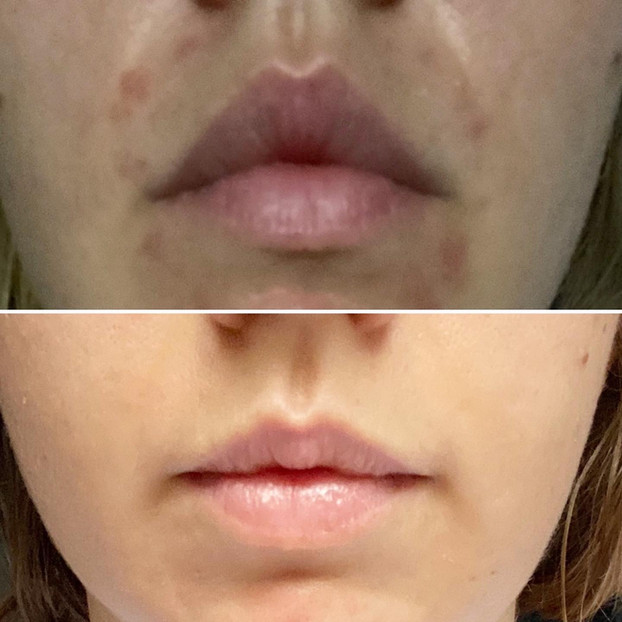
Start your journey to clear skin today!
Frequently Asked Questions about a Rosacea Diet
Q: What is rosacea and how can diet affect it?
A: Rosacea is a common skin condition characterized by facial redness and sometimes pimples. Diet can play a significant role in triggering flare-ups or alleviating symptoms.
Q: Are probiotics helpful for managing rosacea?
A: Some studies suggest that probiotics, particularly Lactobacillus and Bifidobacterium strains, may help improve skin conditions, including rosacea.
Q: What are prebiotics and can they benefit individuals with rosacea?
A: Prebiotics are non-digestible fibers that serve as food for probiotics, supporting the growth of beneficial bacteria in the gut. Including prebiotic-rich foods in the rosacea diet may aid in managing rosacea symptoms.
Q: Can certain foods trigger rosacea flare-ups?
A: Yes, some common triggers include spicy foods, alcohol (especially red wine) chocolate, and caffeine. These items are known to exacerbate symptoms in many individuals with rosacea.
Q: Is there a link between the gut and rosacea symptoms?
A: Emerging research suggests a potential connection between gut microbiota and skin conditions like rosacea, indicating that balancing the gut flora may contribute to improved skin health.
Q: What role does the skin-gut axis play in rosacea?
A: The skin-gut axis refers to the bidirectional communication between the gut microbiota and the skin. This interaction may influence the development and management of rosacea.
Q: Can cinnamaldehyde-containing foods trigger rosacea flare-ups?
A: Some individuals report that consuming cinnamaldehyde-containing foods, such as cinnamon, may lead to temporary reactions including rosacea diet related flare-ups. However, this may vary from person to person.
Q: Does the consumption of spicy foods contribute to rosacea symptoms?
A: Spicy foods containing substances like capsaicin can cause blood vessels to dilate, potentially aggravating facial redness in individuals with rosacea.
Q: What role can an elimination rosacea diet play in managing rosacea?
A: An elimination rosacea diet involves removing potential trigger foods from the rosacea diet and gradually reintroducing them to identify individual sensitivities. This approach can help pinpoint specific dietary factors that contribute to rosacea symptoms.
References:
- https://www.ncbi.nlm.nih.gov/pmc/articles/PMC8794493/
- Rastogi V, Singh D, Mazza JJ, Parajuli D, Yale SH. Flushing Disorders Associated with Gastrointestinal Symptoms: Part 1, Neuroendocrine Tumors, Mast Cell Disorders and Hyperbasophila. Clin Med Res. 2018 Jun;16(1-2):16-28. doi: 10.3121/cmr.2017.1379a. Epub 2018 Apr 12. PMID: 29650525; PMCID: PMC6108509.
- Rastogi V, Singh D, Mazza JJ, Parajuli D, Yale SH. Flushing Disorders Associated with Gastrointestinal Symptoms: Part 1, Neuroendocrine Tumors, Mast Cell Disorders and Hyperbasophila. Clin Med Res. 2018 Jun;16(1-2):16-28. doi: 10.3121/cmr.2017.1379a. Epub 2018 Apr 12. PMID: 29650525; PMCID: PMC6108509.
MEDICAL DISCLAIMER
This content is for informational and educational purposes only. It is not intended to provide medical advice or to take the place of such advice or treatment from a personal physician. All readers/viewers of this content are advised to consult their doctors or qualified health professionals regarding specific health questions. Neither Dr. Tara O’Desky nor the publisher of this content takes responsibility for possible health consequences of any person or persons reading or following the information in this educational content. All viewers of this content, especially those taking prescription or over-the-counter medications, should consult their physicians before beginning any nutrition, supplement or lifestyle program.
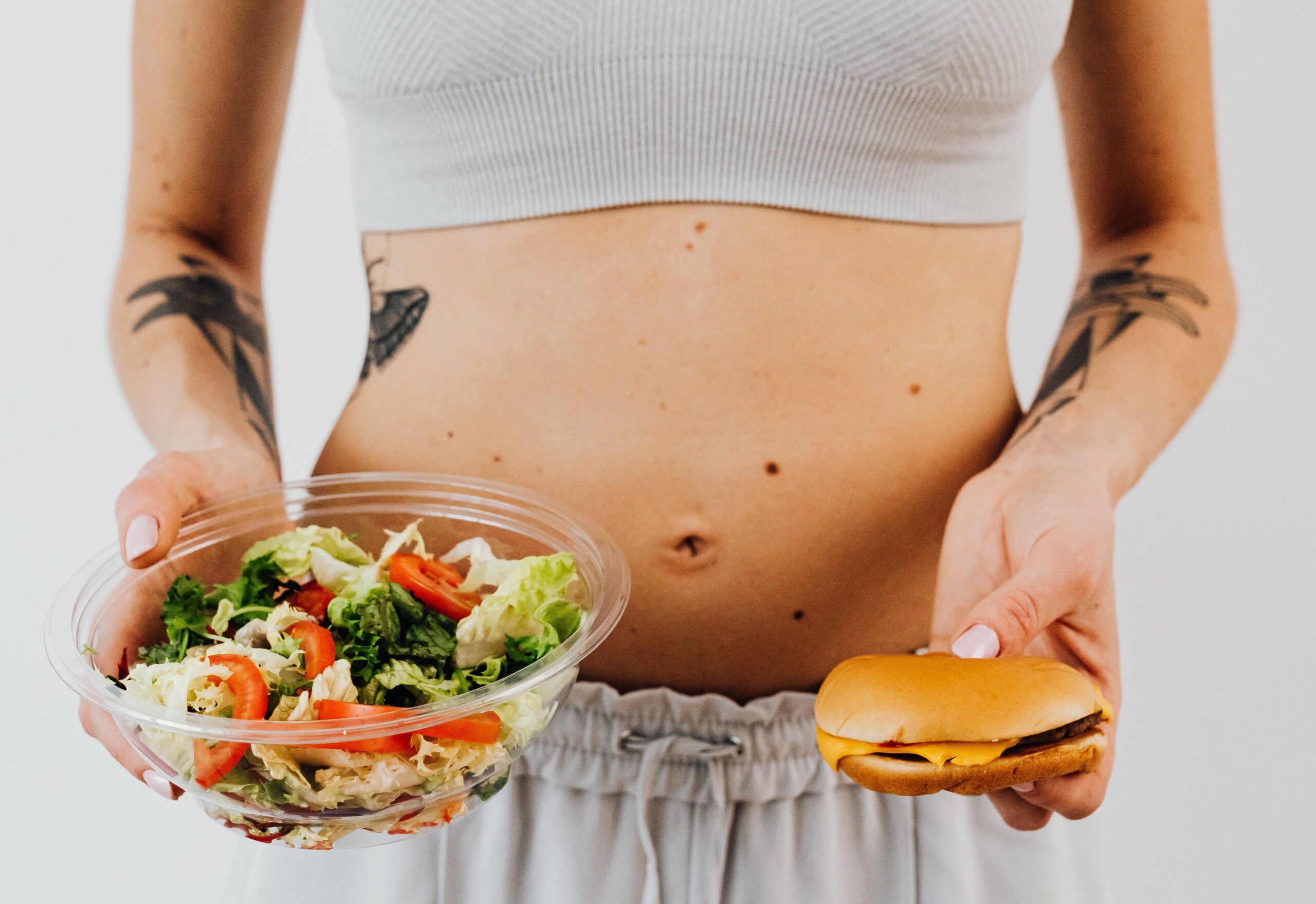
Leave a Reply
Learn More About Me
20 years of rosacea
- rosacea
- chronic skin issues
- gut issues
- food sensitivities
- inflammatory conditions
After 20 years of ineffective treatments and medications, Dr. O'Desky reversed her rosacea 100% through dietary changes and food-based medicine.
Health Coach & Holistic Skin Expert
Meet
Dr. Tara O'Desky
Since developing her own holistic healing program,
The Rosacea Method, she has helped countless patients of all ages with:
- rosacea
- chronic skin issues
- gut health
- food sensitivities
- inflammatory conditions
Dr. O'Desky continues to see patients in private practice in the USA and also sees clients via Telehealth. She currently offers various programs and workshops for people all over the world dealing with chronic health issues, poor gut health, and rosacea.
Health Coach and Holistic Skin Expert
Meet Dr. Tara O'Desky
-L. M.
"I want to say thank you so much for the program!
I never feel hungry anymore. My diet has opened up a ton and I feel really healthy and excited learning that there’s so many things I can eat now that are healthy and tasty. I felt good through the entire cleanse and my skin has definitely improved."
-Anonymous
"I felt so hopeless and I could not see light at the end of the tunnel. Now I have hope again and I feel more positive about my situation overall! Yes it can definitely heal, I have so so sure others heal! This program is great, I feel like It covers everything! Thank you! "
-Darlene B
"For the first time in 6 years, I feel like I have been given a clear direction to go in that will actually heal my skin. There's so much guess work that comes along with skin complications and Tara helps to clear all that up.Recommend 1000%."
This is super helpful because my derm didn’t tell me any of this. Thanks for sharing!!
So very helpful! I was not told any of this at my dermo appointment. I was given an antibiotic and sent out the door.
You’re not alone. It’s so sad!
Thankyou for sharing this. It will really help me to get a grip on my rosacea.
Soo helpful, have changed alot in my diet and there is a small improvement as I also am drinking a smoothie to detox the liver , it’s been really stressful thinking there is no cure .Many thanks so happy I found you.
Oh yes you CAN heal! Don’t worry, just give your body what it needs to heal!
Thank you so much for all the information you share. After my Rosacea diagnosis I felt determined to find a way to treat it without using antibiotics. So glad I found your page. Apart from all information you share you give me hope!
I’m so glad it’s been helpful to you! Don’t give up!
Hello! My name is Lauren Taylor. I’ve been following you for the past month or so. I’m so glad I found you, as you have given me hope for rosacea! I wanted to enroll in the post you made about being able to receive a free program! My email is Baurick.lo@gmail.com. I’ve spent over 40K on mold mitigation in out home (which I believe is one of the main causes of my rosacea). We are financially so drained and tight on money that this would be such a blessing for my skins healing. Every time I read that rosacea can’t be cured, I remind myself of what you say “it can be reversed!”. The gut, liver, and kidneys need to have detox pathways opened and diet and supplementation is HUGE! thank you for reading this
I’m so sorry for what you’ve gone through with mold. It can be so disabling for so many people. Baby steps moving forward.. you will get there!
It’s such a mine field and I certainly need to look into things more but I gave up gluten and caffeine after reading your stuff and that has certainly helped! I went to see a dermatologist the other day and they just offered me 6 months of doxycycline but I know how damaging that can be on my gut so I now plan on focusing more on my diet (along with other things) and this blog has certainly given me some good ideas! Thanks Tara
Fantastic! I’m so glad you’re aware of the side effects of long term antibiotics!
This information is so helpful. I really love learning about nutrition. I wish I loved fish! Hopefully taking a good omega 3 is as helpful? I love wild blueberries and quinoa, so I’m happy to see those on this list!
Very helpful,they just give us antibiotics and send us home,hugs from Serbia…
Ugh so sad! Glad you’re here!
I have noticed when I start eating home cooked meals instead of fast my skin feels so much better 🥰
Same for me. Three dermatologists and not one mentioned changing my diet or trigger foods.
Thankful I found you, and really am looking forward to trying your program with a hopeful heart and faith. I’ve been struggling for years and have tried everything, praying that all of your advice can help. Thank you ❤️
Oh it will help! Give it time!
I came across this, and I am so excited to try it! It looks great😊
Great! You’ll see that a lot of the changes we suggest are not what the “typical” changes are, because we focus on healing internally, as opposed to avoiding flareups!
I am so thankful I found Tara. Her suggested food changes have made a positive change in my rosacea healing.
Thank you Melissa! So glad you’ve found the info helpful!
It’s so encouraging seeing more information about how our diet and gut health play a major role in our rosacea and more importantly in healing it.
YES!!! This info was not available in 2019 when I was trying to heal, so I made it my mission to share it with everyone who needs it!
This is so helpful and so refreshing/ hopeful to hear!
Thanks so much for this! I see barley is on the list of good things to incorporate but i have been gluten free to reduce inflammation and i had been lumping barley in with wheat. I’ll try adding that in.
Unfortunately barley does have gluten, so you’d have to make sure you don’t have celiac or a gluten sensitivity!
Rosacea is new to me but luckily I quickly found your Instagram. I’ve already taken a few small steps that you recommend, but would love the chance to win the program in your birthday giveaway!
You’re entered! Good luck!
This is very helpful. I started cutting out gluten about 3 weeks ago.. trying to stay hopeful it will do the trick.
It’s usually helpful, but next you’ll want to tackle liver health.. and beyond!
Rosacea solution? Just join this program.
Happy Birthday Dr. Tara! Thank you for sharing your knowledge. 🥰
My absolute pleasure!
Thanks a lot for let us know so many factors that add layers to rosacea that conventional medicine ignore.
The emotional piece is very important and the way the body gives us information is very symbolic, do you think that unmet childhood needs like be seen, play a role in the rosacea equation ?
Yes absolutely. In my program I’ve devoted an entire module to the emotional component and an expert workshop on how to begin healing this!
How helpful this post was.thank you
Im really trying to follow this and hoping for results!
You will! It takes time but it’s so worth it.
So many great tips here! Love seeing everyone’s results from the program. I found you after my first visit to the dermatologist. They wrote a script for prescription meds and suggested gut health was ‘an old wives tale’. My gut told me otherwise and so I’ve been on my own journey, inspired by your community.
Thank you for sharing Tara!
So happy to hear this! I cannot wait for the day when dermatologists are handing out pamphlets with this info!!!
Thank you for sharing this information🙏 I thought I was eating healthy for a long time but now when I read about those small changes and how they can affect, I feel so much more motivated to heal from my rosacea.
Yes! Eating “healthy” has a lot of meanings!
This is so interesting! I love the balance of both natural foods and products as well as the holistic approach.🩵
It takes a village! But well worth it!
So much excellent, practical information here! I can’t wait to implement this to see some improvements in my rosacea. So much more helpful than my derm.
I’m so glad you’re finding this helpful!
This is so helpful! I’m also doing low nickel diet for that allergy as well. I’m
wondering if it is also a trigger for me for rosacea?! It’s so hard to figure out what to eat between the two.
Focus on gut healing first, and the rest will follow. Many people have a sensitivity to nickel, but avoiding nickel is not the ideal solution.
I woud love to try your method. Already 52 and spend so much money and time on dealing with rosacea.
I understand! But you can actually heal rather quickly… please sign up for my weekly emails to learn more!
God bless you Dr. Tara for helping people with rosacea, which really affects our self-esteem and life.
I do understand! It can heal!
Your knowledge share is a big help in my healing journey. I’ve been learning a lot with you Dr Tara! Thank you and keep on doing this great work!
Thank you! Best of luck!
Just from posts I’ve incorporated little changes to diet and saw a difference. I don’t have some of the typical triggers but I’ve seemed to find things like peanuts and chickpeas cause some redness and/or irritation coming on. Although in your lists here, those are good foods to have. I’m not sure, I’m slowly figuring out things that work for me but starting with cutting out gluten, dairy and soy have been good for me!
Many people have specific food allergies and sensitivities, so best to keep a food diary and keep track of what makes you react!
Finding your page and website have been so helpful in my struggle with acne rosacea. Thank you for all that you do! (:
I’m so happy it’s been helpful to you!
This was a good read. I feel like working on one meal at a time would be more doable for myself instead of overnight changing everything. Thanks for the suggestions it’s helpful
One meal at a time is a great place to start! Pick a recipe (I have tons available in my Free Guide to Gluten, Inflammation and Rosacea) and give it a try!
Very useful information, I’m looking to include more prebiotics in my diet as I hadn’t yet got my around all of the things. This is all very helpful as base to start with, thank you!
You’re very welcome!
This is such great information! Most of the time, the healthier swaps taste better too. Thank you for all that you do to help others heal!
You’re so welcome! After I healed, I felt obligated to share what I’d learned!
Thank you for all that you do. My rosacea clears up when I follow AIP. But it’s not sustainable. It’s been difficult to start again
AIP is very hard to follow and while it may help temporarily, it’s unfortunately not the solution for rosacea.
I follow you on instagram for months and I tried so much but nothing seems to help. Maybe your program is the right for me…
The program is effective because it pulls all of the info together in a step by step plan, plus you have the support of the private FB community.
Thank you for this post! It makes it so much easier to have actionable items with food suggestions that I can implement now.
Yes! So glad you’re finding it helpful!
After reading your posts, I changed completely my diet. My skin is so much better now. Also I’m doing IF 18:6. It helps to fight body inflammation.
That’s fantastic! I’m so happy you’ve been seeing progress!
Thank you this is really helpful and I will be definitely making some changes to my diet.
Excellent! Keep us posted on your progress!
Thank you for recommending focusing on incorporating helpful foods rather than just avoiding triggers. At this point I feel like I have so many trigger foods that it’s exhausting to cut out so much. Focusing on the good I put in my body today. Thank you for all of your wisdom and resources!
So happy it’s helping you!
I’m so tired of guessing at why I have flushing only on my nose… I’ve always followed the 80/20 rule with diet and am very active… I guess as I get older it is not working the same for me. Time to reel it in.
Thank you Tara for all you share on IG and on here. I’m looking forward to learning more.
Thankful for Dr. Tara’s knowledge and guidance on nutrition and it’s effect on rosacea.
I’ve been suffering for ages with this so this is a really interesting read that no standard GP seems to understand. Thank you.
I suffered for ages as well, and there’s still hope! You can still heal!
I have been following this diet for a long time now . I still have flare ups that seem to last for a couple of weeks and then disappear for a couple of weeks . Same cycle every month . Still trying to figure out the root cause !
A lot of time it’s not diet related, but due to built up toxins and heavy metals. And even suppressed emotions. Don’t give up, you’ll get there!
Recently went gluten free, seeing changes, but have random flares that I can’t pinpoint. Thank you so much for sharing this information, mainstream treatment/ practitioners leave this very important information out. Incredibly frustrating.
I get it! And you’ll get there, it just takes time and knowledge!
As someone with a history of disordered eating I am so overwhelmed at how to change my diet to be more rosacea friendly. I really appreciate the food swap suggestions as an approachable way to start making small changes!
Absolutely! We’ve had many members in the program with eating disorders who actually do quite well because we encourage you to eat!!!
Thank you so much for putting such helpful information out there. I cannot even imagine how much time it has taken you. I actually feel like there’s a chance I can heal. Thank you for that.
You can ABSOLUTELY heal!!!
When I found you on instagram and started making the changes in diet you share in your posts, after just 1 month I saw extremely big improvements. I still get red when I’m stressed or angry. So many years I supressed my emotions and I’m glad I found you and I realised what lead me to developing rosacea and you gave me all the hope and strength. Glad you exist!
I feel so lucky to have found your IG. Rosacea runs in my family and I am determined to reverse mine! I have taken many steps recommended from your page, but I know it is time to take a deeper dive and commit to the program. It will be a challenge with my busy 2 year old trying to run the show, but I am ready. I really hope I am chosen for the giveaway!
You can definitely do it… we have many busy Mamas in the program and we all support each other!
I’ve been gluten-free for 2 years but never considered dairy. I’m gonna try eliminating that and chocolate. This blog post was very helpful! I too was sent out the door with rx for doxy and triple cream
Ahhh yes, the go to treatments. You’re not alone!
Loved this, since getting rosacea just a year ago .. I’m understanding more about it! This was so helpful
So glad it’s helpful to you!
Hi I’m from Indonesia! I am very grateful to DR. Tara who has provided a lot of information about rosacea, because this is very useful! In Indonesia, very few people suffer from rosacea, this makes it difficult for me to get information, knowledge and even treatment from dermatologists. I hope there are many things that can help me to improve the condition of my rosacea skin here. Thank you DR. Tara
You’re so welcome! I’m so glad you found me!
I am glad that I found your page for related information on rosacea but I am still trying to figure out my root cause.
The root cause is usually a combination of many factors. You’ll get there!
Thanks Dr. Tara for giving me hope to live a normal life.
Aside from rosacea, I have a series of other inflammation related symptoms. I’ll be elated if adjusting my diet and lifestyle improve my rosacea, but I’m anxious to see how/if these changes help with anything else (psoriasis, frequent upset stomach, sleepless nights, etc.) I’m otherwise “healthy,” so im ready to get serious about an alternative.
So many of us deal with ALL of these, and yes, they are all connected! Hope to meet you in the program!
I’m so glad I’ve found these resources. I’ve suffered from rosacea/psoriasis/eczema for years and am finally learning there are things I can do to treat it without medications and creams. Thank you so much for the helpful information.
You’re so very welcome!
Been livi no on an anti-inflammatory and low histamine diet for awhile now, without a ton of progress…hoping reducing stress will be the thing that helps my gut and flips it around for me…
Stress is often a huge factor!
Thank you for sharing this information and I can’t wait to keep reading more of your blog posts! I developed type 1 rosacea and the flushing is so embarrassing not to mention physically uncomfortable. I’m hoping to learn everything I can!
So glad you found me!
I have been struggling with acne rosacea for a few years now as I decided to stop taking the pill and I must say that by adopting certain of Dr O’Deskys methods have help a little ! I would love to try her method in order to be able to cure it 100%!
You’ll get there!
Thank you so much for this wonderful information! I’ve been adding in the ‘good foods’ to my diet while cutting out gluten, dairy and processed food for the last six months; it has really made a difference to my skin even though I have a ways to go still. I’m very grateful to have found you when I did! I’d really love to be able to do the complete program one day 🙂
Hi Lauren! I’m so glad the food swaps have been helpful to you. And yes, someday please join the program to learn so much more!
Thank you so much for all your in-depth articles and knowledge that you share. I’m so glad I didn’t carry on with the antibiotics, I stopped going at my skin with all the crazy products and just did small swaps in terms of household toxins. My skin still flares up, and I need fine tuning. But you are lighting the way 💖
Thank you so much, and you are so right to follow your intuition and trust that you are making healthier choices all around. You’re on the right path! Keep going!
Thank you for your years of research and hard work. My 10+ year journey with rosacea has been an emotional rollercoaster. It is nice to know that I am not alone and there may be a light at the end of the tunnel.
This information is invaluable.
Hi Jessica! I can relate! There is ABSOLUTELY a light at the end of the tunnel, and I promise you’ll get there!
I have been trying so many topicals and treatments and now I even have scars.
Unfortunately, topicals do little to help reverse rosacea. But scarring can heal!
I have the vascular type of rosacea with the blood vessels on my cheeks and nose. Will dietary changes help to reduce/reverse this type of rosacea?
Dietary changes are one piece of the puzzle. Have a look at the before/after photos on my website. You’ll see tons of clients who’ve reversed this type of rosacea with my program!
Wish I knew this much earlier. Antibiotics and strong topicals could have been avoided and there would most probably be much less scarring.
Yes, absolutely. But now you know!
I have the vascular type of rosacea with blood vessels on my cheeks and nose. Will dietary changes help to reduce/reverse this type of rosacea?
Thanks for this information. How long in general do you have to cut out gluten? I currently eat gluten just on the weekends, is that enough to impact my rosacea?
If you are sensitive to gluten, this will absolutely have an impact on your skin.
This is so helpful! Thank you for sharing your journey and taking time to explain and break down why these things are so important.
You’re so welcome! Food swaps can make a huge difference!
Coming across your Instagram was the first thing that has given me hope that one day I could reverse rosacea! Rather than it just getting worse and worse. Thank you for putting out bits of insightful information to help me start to learn more about how to help myself.
I’m so happy you found me!
This is so great!! So much useful information, I really appreciate this.
You’re so welcome!
I love this information so much. As many “health” foods today aren’t even healthy, our food has been demonized and the american people have been taken advantage of. I love seeing people wake up to reality of what healing truly is. Here to have a chance at winning the rosacea method giveaway❤️🙌🏽
Rosacea is happening way too often these days… and it’s preventable! So happy to hear you’re aware!
This is a great article . Thank you so much for all the helpful tips . I have already incorporated a lot of these changes but there are some I was not aware of at all !
Thank you so much for so may free resources to get started healing ❤️ I love when you said, think about each food you’re putting in your mouth and if it’s helping or hurting your gut miceobiome. Such a helpful way to make better choices! Love your information. I’ve already started on my gluten free diet and more recently dairy free altho I did have a fre hiccups in thr first week, but im back at it and hoping it will help!
So excited for you Rache! You’ll get there!
Thank you so much for all of these healing tips and trips!!! You provide so much info to help us…so much appreciated!! Hoping to be able to purchase your program at some point to complete my healing!
Love this! I think it can get super overwhelming so love these easy swaps!
This taught me how important diet is for rosacea! Thanks so much for this.
Diet has a huge impact on your health!
Thank you for sharing this information. It’s been very helpful as I navigate my severe symptoms.
You’re very welcome!
🙏
Thanks for sharing this with us. So very helpful 😍
This is so helpful. I was scared of so many foods even chickpeas and tahini and oranges – and it’s all healing and this really helped 🤍🙏
I’m so glad you no longer fear foods! It’s life changing.
Thank you so much for sharing the blog 🙏 As someone who struggles with rosacea, I really appreciate it! This means a lot to us❤️
This information has been so helpful for my healing process.
Thank you for sharing. It has been so frustrating dealing with rosacea. And today, I was told today I have possible shingles on my head behind my ear. My bucket is definitely overflowing now.
Sooooo sorry. It’s actually very common with rosacea!